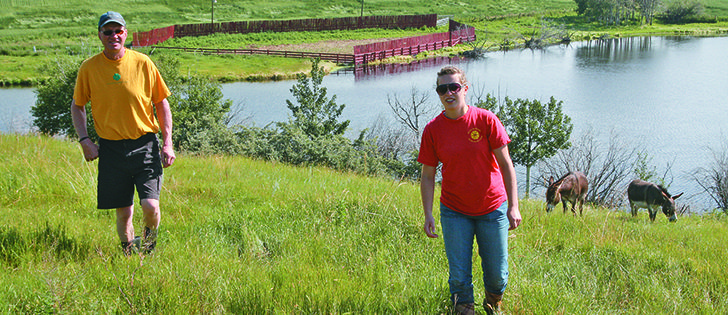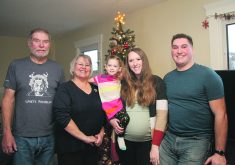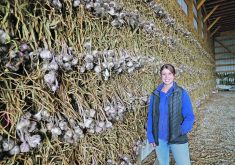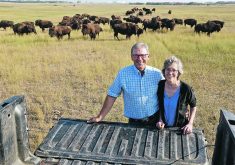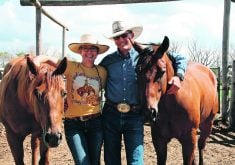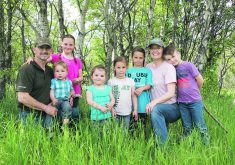Everyone plays a role | Taking over the family’s mixed farm requires help from the parents and children
“One of the things I’ve taken from being raised here is that everything has its place,” said their son, Barry, who farms in this Danish community in southeastern Alberta.
He and his wife, Pauline, seed 4,000 acres of wheat and canola and run a 140-head cow-calf operation called Dalbey Farms with their two daughters, Kirsten and Jenny, and his parents.
“The simpler the better,” said Barry, who has dabbled in malting barley and peas. “We try to do rotations to break chemical resistance.”
The family was committed to summerfallow on their hilly land until recently.
Read Also
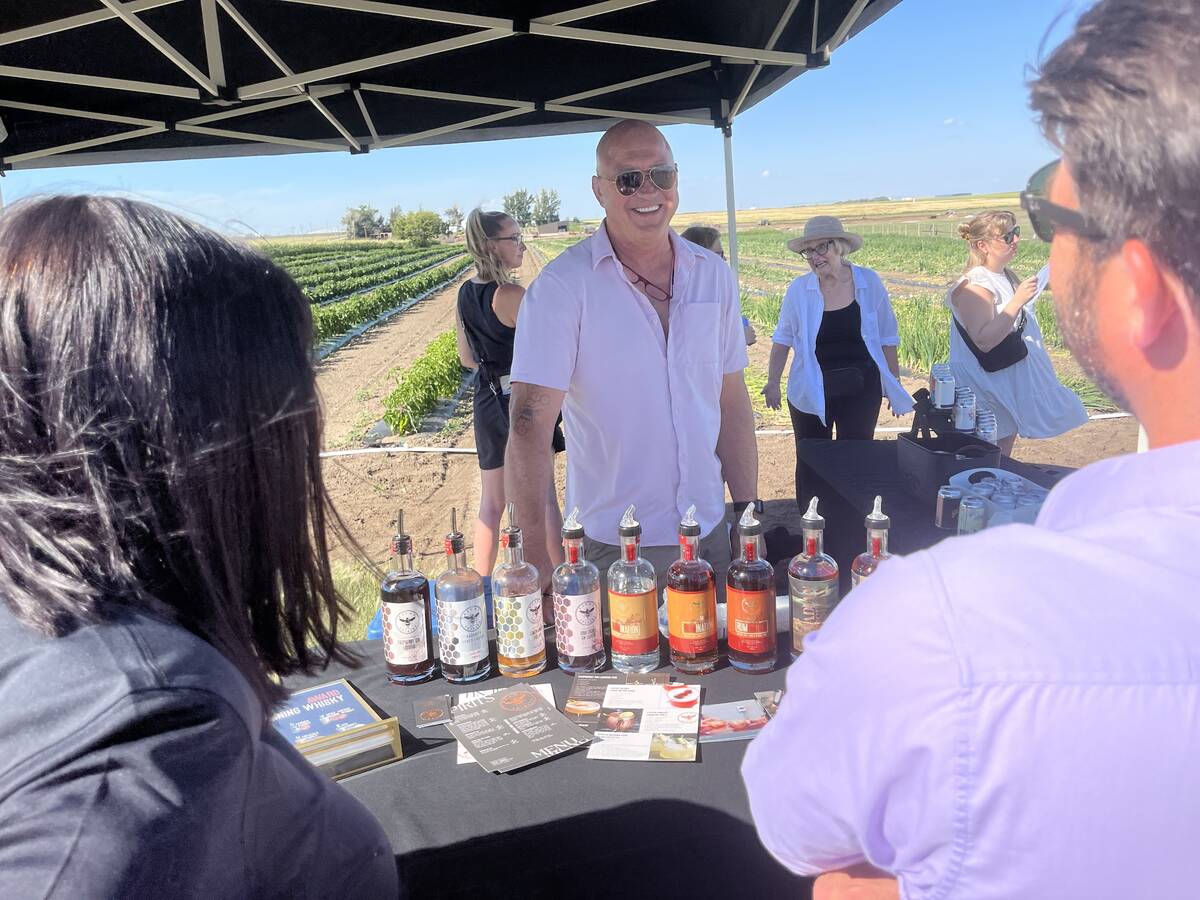
From farmer to award-winning distiller
Pivot Spirits showcases transition from farmer to distiller with provincial award-winning results in Alberta for Lars Hirch
However, modern equipment and technology supported practices such as straight cut combining, high clearance spraying, zero tillage, underseeding canola and seeding grass on marginal lands, which has allowed them to switch to continuous cropping.
Protecting equipment is a priority because it holds its value longer, Barry and Olav say.
Smiles form as they describe this year’s “terrific” crops, their enthusiasm dampened only by localized hail damage.
Olav came to Canada to work on his uncle’s farm in the 1950s despite having no previous experience.
“No one had anything to do with agriculture, but that was all I wanted to do,” he said.
The first prairie winter was hard on Olav, who was tempted to return home, but then life improved.
“The girls looked just as good here as in Denmark,” he said.
Rita’s father had arrived from Denmark in 1926 and he, like Olav, met his Danish-Canadian wife in Canada. Olav also worked for Rita’s father, later buying his own land and producing livestock and crops.
Times were lean, with Rita peddling eggs for $1.05 for three dozen to help feed her family, which grew to include four children and five grandchildren.
“I hope our grandchildren never have to get along on what we survived on,” said Rita. “We had no choice.”
Everyone pitches in with farm work. Rita said the family has long pursued a tradition of serving hot meals to field workers at lunch and delivering suppertime sandwiches at the same time to keep crews fueled through the evening.
Pauline does field work as needed as well as bookkeeping.
“She manages the costs, I just spend it,” said Barry.
Daughter Jenny is studying to become a teacher, while Kirsten is taking animal health technology and hopes to eventually pursue work in a large animal veterinary practice as well as farm with her family.
She said the livestock end of the business is different than the grain side.
“Unless you have 500 cows, you can’t make it.”
Barry likes the busy livestock lifestyle, saying it gives him something to do every day.
“There’s no money in the cows. We do it because we like the cows.”
He said the farm is now at a tipping point. Getting bigger will mean needing more labour, while an influx of commuters and acreage owners has affected the availability and price of farmland.
“The beauty of this farm is because of Mom and Dad helping, the transition of going between three generations is much easier,” said Barry.
“Kirsten is old enough to help on whatever job and Dad is able to help on whatever job. That extra support is absolutely huge.”
Kirsten’s growing involvement will give Barry and Pauline the opportunity to slow down or get away. While Barry and Rita prefer to stay put, Olav takes regular trips to Denmark.
Pauline said time away allows for perspective about the business.
“Because we live, work and play here, there’s no distinction. You can’t close the door.”
She and Barry met as students at Olds College and both worked before farming. It was a radical lifestyle shift for Pauline, who was raised in Revelstoke, B.C.
“It was a testament to better or worse. It was like living in a foreign country,” said Barry.
The succession from father to son has been gradual and conservative, with Barry veering away from radical changes and the older couple offering emotional support.
“As it progresses, the older generation is more of a sounding board,” said Pauline.
Added Barry: “If Dad says so, it’s a good idea. If he says nothing, then I have to rethink it.”
He called respect for elders part of his upbringing.
“That’s how we’ve been raised.”
Barry also emphasized the importance of letting go of the reins.
“If you never let the next generation make a decision, they never will be capable. Sometimes you have to let the next generation make a mistake.”
Olav agreed: “A mistake is OK as long as you learn from it.”
Off the farm, the family is involved in community and church activities. Rita was a Drumheller Rotary Club citizen of the year nominee and has received an Alberta Health Services Award for her work at lodges and the hospital.
The farm has received awards for its landscaping, and this year the Pallesens received the BMO Farm Family of the Year award at the Calgary Stampede.
“For (Olav) to come from Denmark with $20 in his pocket and make this, he thinks he made a good decision,” said Pauline.

